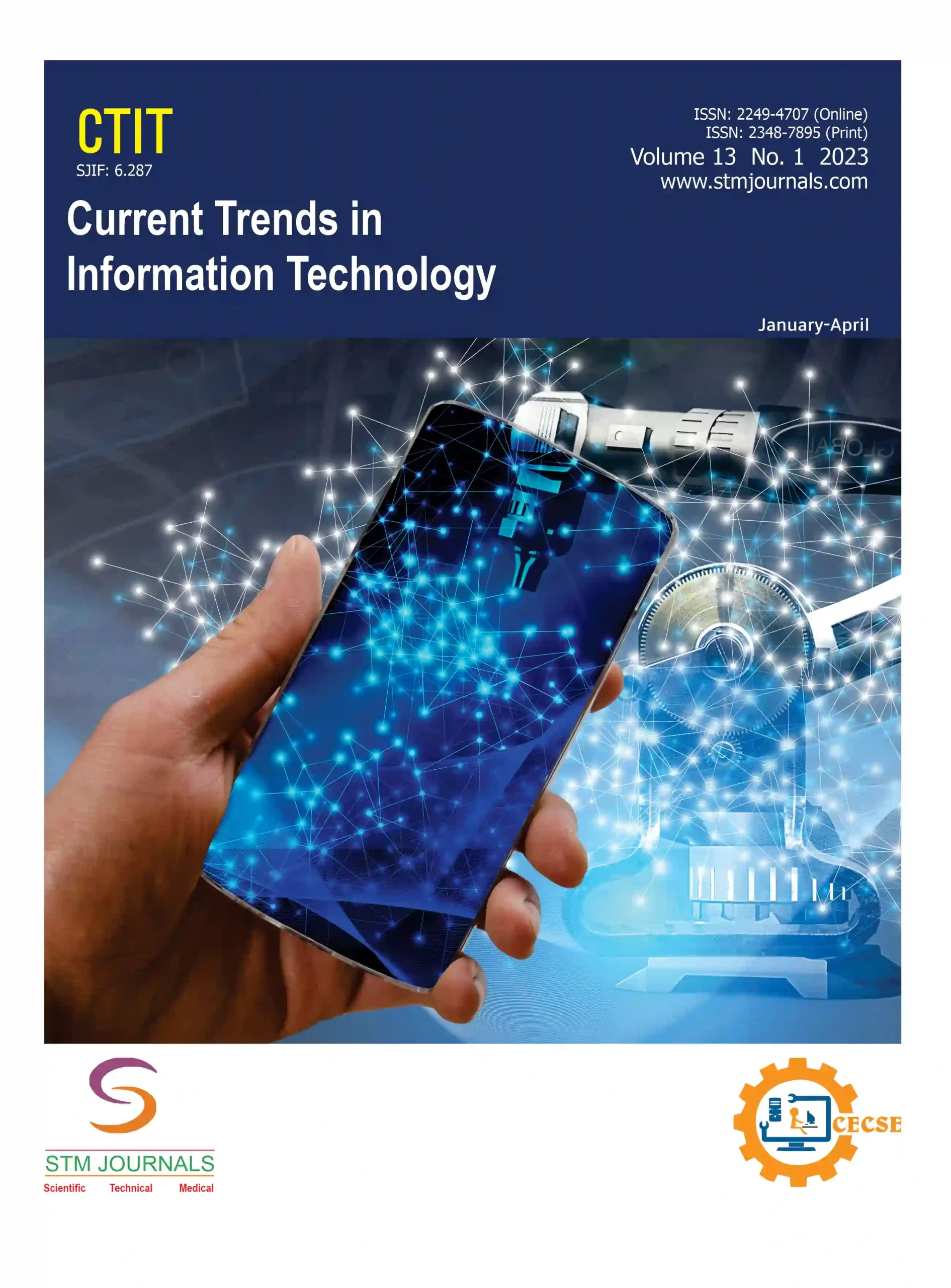
Shikha Deshmukh Gavhade
- Assistant Professor, Department of Electronics and Communication, Corporate Institute of Management, Bhopal, Madhya Pradesh, India
Abstract
Artificial intelligence stands out as a prominent trend in today’s technological landscape, enabling machines to engage in human-like thinking, learning from experiences, adapting to new inputs, and making decisions. This capability facilitates rapid and error-free results, akin to human rational decision-making. In the contemporary business landscape, which is often regarded as a cornerstone for national development, artificial intelligence plays a pivotal role. Businesses, ranging from small-scale enterprises to medium-sized ones (SMBs), are reaping the benefits of AI by reducing costs, enhancing performance, bolstering security, and efficiently monitoring various business functions. These aspects are crucial for the establishment and sustenance of businesses within the economy. To deal with such issues artificial intelligence can work as a catalyst. The main objective of this research paper is to attain competitive advantage and analyze the profit of adopting AI in business firms for their intensification and development. The rapid advancement of artificial intelligence is compelling strategists to reconfigure business models, leading to the widespread incorporation of AI into various business processes. This trend provides valuable insights into the deployment and consequences of AI for business leaders, managers, technology developers, and implementers. The exploration encompasses considerations of cultural heritage values and risk assessments for conservation and mitigation. Additionally, it delves into the evaluation of onshore and offshore technological capabilities, incorporating spatial equipment to address marketing and retail strategies, as well as applications in insurance and healthcare systems.
Keywords: Artificial Intelligence, Machines, Business Strategies, Innovation, Business.
[This article belongs to Current Trends in Information Technology(ctit)]
var fieldValue = “[user_role]”;
if (fieldValue == ‘indexingbodies’) {
document.write(‘Full Text PDF‘);
}
else if (fieldValue == ‘administrator’) { document.write(‘Full Text PDF‘); }
else if (fieldValue == ‘ctit’) { document.write(‘Full Text PDF‘); }
else { document.write(‘ ‘); }
References
1. Kshetri, N. (2018). Opportunities and challenges of artificial intelligence in business. International Journal of Entrepreneurial Behavior & Research.
2. Tucci L. A guide to artificial intelligence in the enterprise. Enterprise AI. TechTarget; 2024. Available from: https://www.techtarget.com/searchenterpriseai/Ultimate-guide-to-artificial-intelligence-in-the-enterprise
3. Singh N. Role of Artificial intelligence in Business Management – Aeologic Blog. Aeologic Blog. 2023 . Available from: https://www.aeologic.com/blog/role-of-ai-in-optimizing-business-management/
4. Caflou. The Use of AI in Business Management . Caflou.com. 2024. Available from: https://www.caflou.com/the-use-of-ai-in-business-management
5. Cockburn, Iain M., Rebecca Henderson, and Scott Stern. (2019). The Impact of Artificial Intelligence on Innovation.” The Economics of Artificial Intelligence: An
Agenda.
6. Soni Neha, Sharma EK, Singh Narotam, Kapoor Amita (2018) “Impact of Artificial Intelligence on Business.” Digital Innovations, Transformation, and Society
Conference 2018 (Digits 2018).
7. McCarthy, John, Minsky ML, Rochester N, Shannon CE (2006). A proposal for the Dartmouth summer research project on artificial intelligence, august 31, 1955.” AI
magazine.
8. Park, Sang-Chul. (2017) “The Fourth Industrial Revolution and implications for innovative cluster policies.” AI & Society
9. Mazali, Tatiana. (2018) “From industry 4.0 to society 4.0, there and back. AI & Society.
10. Gulli, Antonio, and Amita Kapoor. (2017) “TensorFlow 1. x Deep Learning Cookbook: Over 90 unique recipes to solve artificialintelligence driven problems with
Python” Packt Publishing Ltd.
11. Firschein O, Fischler MA, Coles LS, Tenenbaum JM. Forecasting and assessing the impact of artificial intelligence on society. InIJCAI 1973 Feb (Vol. 5, No. 1, pp. 105-120).
12. Elo S, Kyngäs H. The qualitative content analysis process. Journal of advanced nursing. 2008 Apr;62(1):107-15.

Current Trends in Information Technology
| Volume | 14 |
| Issue | 01 |
| Received | January 25, 2024 |
| Accepted | March 15, 2024 |
| Published | April 3, 2024 |
function myFunction2() {
var x = document.getElementById(“browsefigure”);
if (x.style.display === “block”) {
x.style.display = “none”;
}
else { x.style.display = “Block”; }
}
document.querySelector(“.prevBtn”).addEventListener(“click”, () => {
changeSlides(-1);
});
document.querySelector(“.nextBtn”).addEventListener(“click”, () => {
changeSlides(1);
});
var slideIndex = 1;
showSlides(slideIndex);
function changeSlides(n) {
showSlides((slideIndex += n));
}
function currentSlide(n) {
showSlides((slideIndex = n));
}
function showSlides(n) {
var i;
var slides = document.getElementsByClassName(“Slide”);
var dots = document.getElementsByClassName(“Navdot”);
if (n > slides.length) { slideIndex = 1; }
if (n (item.style.display = “none”));
Array.from(dots).forEach(
item => (item.className = item.className.replace(” selected”, “”))
);
slides[slideIndex – 1].style.display = “block”;
dots[slideIndex – 1].className += ” selected”;
}

